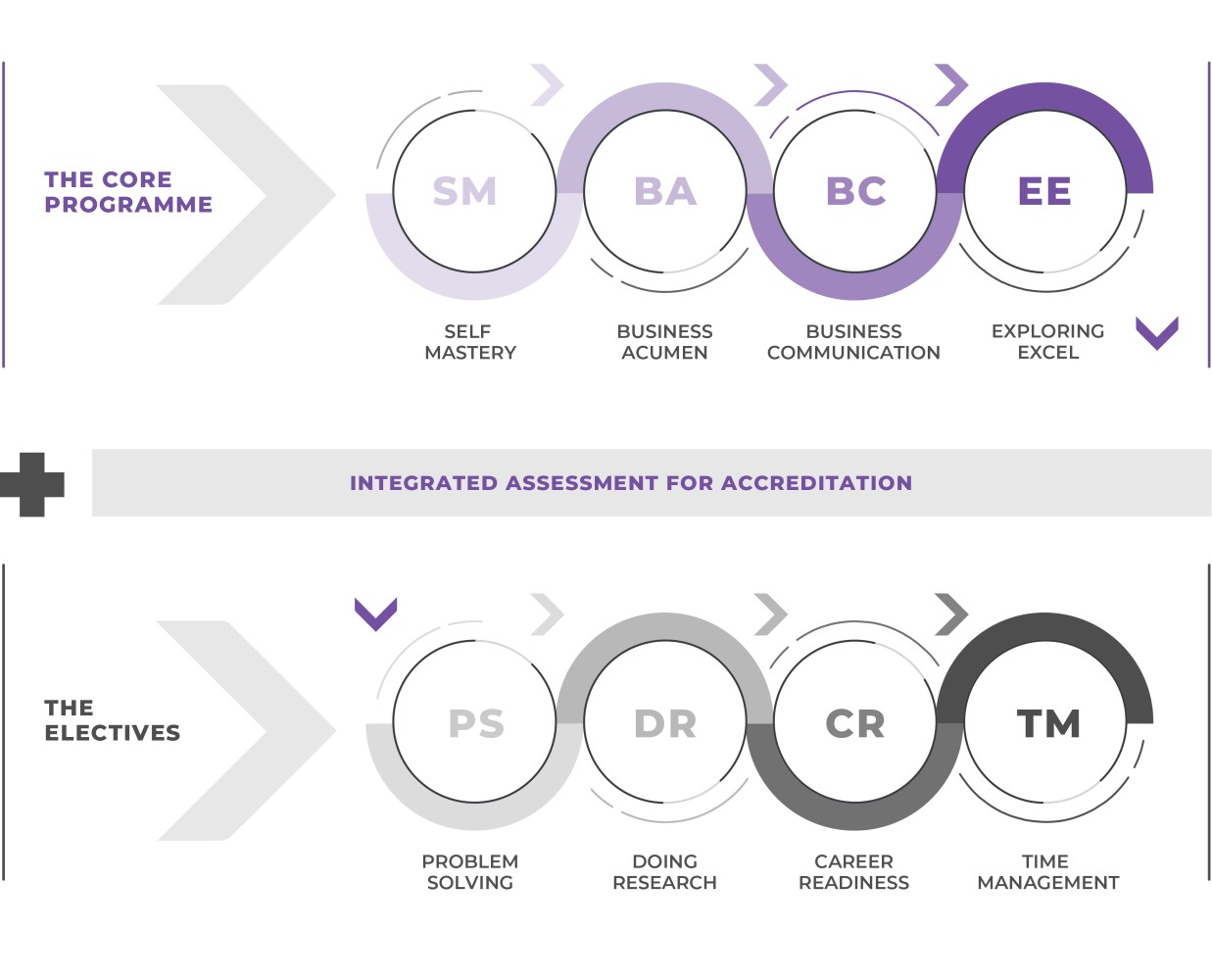In today’s changing world of work, transitioning from studies to the professional realm can feel overwhelming. Acknowledging this hurdle, CPS, through its #Thrive Track Workplace Development Programme, took on the challenge of helping young graduates bridge this divide by providing them with the skills and knowledge to excel in their careers. This programme stood out as a beacon of innovation and transformation for our proof of value cohorts.
From inception, the programme architecture was meticulously designed to provide graduates with the skills to seamlessly integrate into the workforce through a series of modules designed to foster growth and advancement. From grasping communication nuances to self-mastery and business acumen intricacies, every aspect of the programme was carefully crafted to facilitate learning and development.
The Learning Journey at a Glance

The true gauge of any programme’s success lies in its influence on participants’ lives. By conducting an impact survey, the #Thrive Track Workplace Development Programme aimed to measure how effective its interventions have been.
Participants were asked to share their thoughts and describe the transformations they experienced using a series of rating questions and open-ended questions. Ultimately, the findings provided insights into a profound transformation.
Participants reported substantial changes in their confidence, with an exceptional increase in competence in various spheres. From managing the nuances of professional communication to developing their business thinking, every participant was highly affected by the programme, which enabled them to thrive in the increasingly complex conditions of the working world.
One of the defining features of the #Thrive Track Workplace Development Programme was the centre on learning through application.
The hands-on approach provided participants with the skill and confidence to navigate the working environment’s ecosystems. From mastering Microsoft Excel formulas to making strategic business decisions, the practical application of knowledge proved invaluable.
As the programme demonstrated its success, participants were not only equipped with new skills and knowledge but also with a sense of purpose and direction. As such, armed with the ability to confront the ever-changing demands placed on one in the modern workspace, participants were ready to venture into the professional journey.
Overall feedback indicates that this programme has given graduates new insights and has had an impact on reducing the gap between the world of work and education. It has paved the way for a more promising future by enabling them to succeed from the moment they arrive in the workplace.
The impact of the intervention stands as evidence to strongly encourage companies to start investing in young people in their journeys to the world of work in a much more proactive manner.
If we consider the different worlds graduates have grown up in, we cannot ignore that different backgrounds, language barriers, and educational inequalities make it clear that when they enter the world of work, they do not come in on equal footing.
Most have not been raised around corporate dining rooms or exposed to family members from corporate backgrounds. Tragically, in the 21st century and with decades of democracy, the sad reality is that most graduates are still first-time developers in the factory of tertiary education within their families.
With this in mind, let’s help them shape their futures by equipping them with the tools to navigate their ecosystems early in their employment so that they are set up for success upfront.


0 Comments